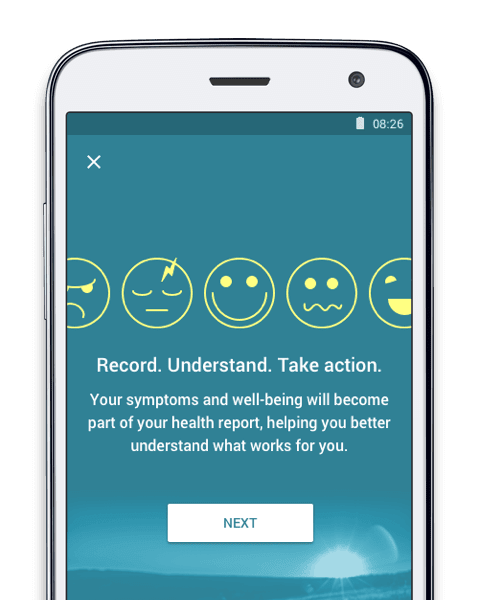No group of people has more power to raise awareness and smash the stigma surrounding mental illness than celebrities. Those who have opened up about their own mental health have helped countless people, including other celebs, acknowledge their own struggles with mental wellbeing. Here are 10 famous faces who have helped shine a light on mental illness and quotes from each of them.
Read Part One Here:
5 Sports Stars Who Have Discussed Mental Health
Michael Phelps
“I questioned whether I wanted to be alive anymore. I realized I am the strongest person I know, but I felt like the weakest.”
Being the most decorated Olympian in history, with a staggering 28 medals (23 of which are gold), does not make Michael Phelps immune to mental health issues.
The swimmer has become the face of online therapy service, Talkspace, sharing his experiences in video and written form.
Phelps received therapy after he was arrested for driving under the influence of alcohol in 2014, after which he later told Sports Illustrated did not want “to be alive anymore.”
Since his recovery, he has become one of the most recognizable and prominent mental health advocates from the world of sport.
– Michael Phelps
Ricky Williams
Ricky Williams, the former NFL running back and Heisman Trophy winner, was often labeled with tags such as ‘eccentric’ or ‘weird’ for performing interviews with his helmet on.
He would avoid contact with fans and found himself isolated from friends and family. While he had always considered himself shy, it wasn’t until Williams was diagnosed with social anxiety disorder, avoidance disorder, and borderline personality disorder that he was able to identify the cause of his suffering and start receiving treatment.
Since retiring in 2011, Williams has focused on a variety of topics, from Chinese medicine to astrology to medicinal cannabis, all while speaking openly about his mental health issues and encouraging anyone struggling to seek help.
“After I was diagnosed with social anxiety disorder, I felt immense relief because it meant that there was a name for my suffering. I wasn’t crazy or weird.”
– Ricky Williams
Serena Williams
With 23 Grand Slam titles to her name, Serena Williams is one of the greatest tennis players of all time. The birth of her daughter, Olympia, in 2017 involved an emergency c-section and multiple surgeries due to complications caused by a pulmonary embolism.
In the months that followed, her physical recovery from the birth was coupled with what Williams described as ‘postpartum emotions’ on Instagram. She purposely avoided the word ‘depression’, believing ‘emotions’ is a broader term, with which more people will be able to relate.
Williams has since discussed mental health in both the mainstream media and on social media, helping raise awareness in general and to draw attention to specific issues, such as the care received by black and ethnic minority women.
“Speak out. Sometimes you’re not being heard, but speak out again – speak out louder – and continue to try.”
– Serena Williams
Ricky Hatton
Ricky “The Hitman” Hatton is one of the most popular boxers of recent years, supported by a huge number of passionate fans whenever he entered the ring.
He suffered depression following his retirement in 2012, telling the BBC: “I tried to kill myself several times.”
He has since spoken candidly about his experiences, as have other boxers such as Tyson Fury and Frank Bruno. Given the macho nature of their sport, Hatton hopes their openness will help others – not least men – realize that mental illnesses are not a weakness.
“We’re out of our comfort zones with depression. I certainly was and whenever I have bad days now, I speak to someone to get it off my chest. I have no shame telling that and that’s why I’m here today.”
– Ricky Hatton
Other posts you may be interested in on the MyTherapy blog:
- 9 Mental Health Blogs You Should Read in 2019
- 3 Celebrities Selma Blair Joins in Living with Multiple Sclerosis
Brandon Marshall
Brandon Marshall was diagnosed with borderline personality disorder in 2011, a year after signing a $50 million contract with the Miami Dolphins. The lucrative deal, to Marshall’s surprise, failed to tackle the depression with which he had been living in the years beforehand. After his first season in Miami, friends and family members convinced Marshall to seek professional help, which resulted in his diagnosis of BPD and the start of his treatment.
He has since described advocating for mental health awareness as his purpose, while the fame his football career has earned him provides a platform upon which to fulfill it.
Marshall and his wife, Michi, founded Project 375, a non-profit dedicated to eradicating the stigma surrounding mental health. He has also contributed to The Players’ Tribune, which has become a platform for many sports stars to share their stories regarding mental health.
“We mostly hear only about the dark side of mental illness. We rarely hear about people with mental health issues who are nonviolent, or who are suffering in silence. We don’t hear about the person sitting at home, just wishing he could tell his wife that she’s beautiful and that he loves her.
“That’s why I’m dedicated to eradicating the stigma surrounding mental health.”
– Brandon Marshall
5 More Celebs Who Have Shared Their Experiences with Mental Health
Prince Harry
Prince Harry lost his mother, Princess Diana, in a car crash in 1997 that made headlines worldwide. Harry, who was 12 at the time, said the grief, along with the very public nature of royal engagements, pushed him close to a breakdown on several occasions.
He revealed that he endured two years of “total chaos” before receiving counseling when he was 28.
In 2016, Harry, along with his wife, Meghan; his brother, William; and his sister-in-law, Kate, launched Heads Together, which works together with other charities and organizations on campaigns aiming to end the stigma surrounding mental health.
“I know there is huge merit in talking about your issues and the only thing about keeping it quiet is that it’s only ever going to make it worse.”
– Prince Harry, Duke of Sussex
Cara Delevingne
Cara Delevingne is one of the most successful models in the world and has a number of acting roles to her name.
She battled depression in her teenage years, culminating with a breakdown when she was 15, resulting in her being taken out of school. She has openly discussed her younger years since, describing “something dark” was within her that she did not understand.
Her own experiences also laid the foundation for her book, Mirror Mirror, that addresses the topic of teenage mental health.
“I hated myself for being depressed, I hated feeling depressed, I hated feeling. I was very good at disassociating from emotion completely.”
– Cara Delevingne
Stephen Fry
Stephen Fry’s achievements include, but are not limited to, a television career that spans from comedies to documentaries to dramas; regular film appearances; being a familiar voice on British radio; being revered in the theatre as a playwriter, director, and actor; narrating audiobooks; and having his voice pop up in video games and adverts.
He was diagnosed with bipolar disorder when he was 37, having experienced mental health problems for much of his life. He had turned to drugs and alcohol, and attempted suicide, before finally receiving his diagnosis.
He subsequently produced a documentary called The Secret Life of a Manic Depressive for the BBC in 2006, in which he was joined by other celebrities living with mental illnesses, which was followed up by The Not So Secret Life of a Manic Depressive a decade later.
Fry is president of British mental health charity, Mind, has supported other charities and organizations, and regularly discusses mental wellbeing in the media.
“Once the understanding is there, we can all stand up and not be ashamed of ourselves, then it makes the rest of the population realize that we are just like them but with something extra.”
– Stephen Fry
Michelle Obama
Michelle Obama regularly used her platform as First Lady of the United States to discuss mental health and the need to end stigmatization.
From launching Joining Forces, a service for veterans and their families, to supporting Give an Hour, a nonprofit that calls upon citizens to help one-another with mental wellbeing, Obama not only raised awareness of mental health but also supported vital services.
Throughout her tenure as First Lady, Obama undoubtedly helped change people’s perception of mental health, while ensuring more people who needed support were able to receive it.
“When it comes to mental health conditions, we often treat them differently from other diseases like cancer, diabetes or asthma. And that makes no sense. Whether an illness affects your heart, your leg or your brain, it’s still an illness, and there should be no distinction.”
– Michelle Obama
Kendall Jenner
Kendall Jenner was 11 years old when Keeping Up with the Kardashians first aired, while her modeling career kicked off just a few years later. She has since gone on to become the highest paid model in the world, living a life most people could only dream of.
She also lives with anxiety, which forced her to take a break from modeling in 2016. Jenner has spoken openly about her experiences, including the difficulty in dealing with the news that her half-sister, Kim Kardashian, had been robbed at gunpoint in Paris.
She has also discussed her anxiety on her social media channels, across which she has well over 100 million followers. Such a vast following highlights the influence she can have, and how speaking openly about her mental health can encourage her many admirers to do likewise.
“Anxiety was a huge hurdle for me to deal with this past year (and security concerns didn’t help), but I think I’m finally learning how to cope.”
– Kendall Jenner
Celebrities & Mental Health: The Importance of Awareness
In sharing their mental health stories, celebrities like those listed here are helping prove that no one is immune to mental illness and that there is no shame in acknowledging when you need help.
If you are concerned about your mental health, these articles can offer advice about who you can turn to for help:
Take a look at some of the other posts on the MyTherapy blog:




